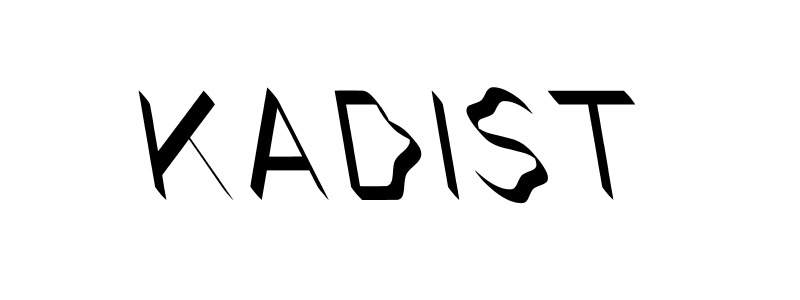Blindseye Arranger (Max)
2013 - Film & Video (Film & Video)
Brian Bress
Blindseye Arranger (Max) (2013) features a greyscale arrangement of rudimentary shapes layered atop one another like a dense cluster of wood block prints, the juxtaposition of sharp lines and acute angles creating an abstracted field of rectangular and triangulated forms composed as if in a cubist landscape. As the video progresses, however, a disembodied hand begins to move these forms, animating a pictorial frame that was previously still. The hand – ostensibly the “arranger” of the works title – functions as a metonym of the artist’s hand, quite literally bringing a motionless work to life. The hand in Blindseye Arranger , though, also signals a shift towards the performative, functioning as a reminder that all works of art are created by a maker’s “hand” and, in such, are never fully separate from the context in which they are made. Bress’s gesture towards interdisciplinarity in his work, by extension, signals an important moment in which questions of medium-specificity give way to more trenchant inquiries into notions of authorship and creative process.
Although originally trained in filmmaking and animation, Brian Bress explores the influence of pictorial traditions on contemporary media-based practices. His single-shot videos utilize painterly effects such as geometric abstraction to create visual compositions that blur presumed boundaries between contemporary media-based work and more traditional disciplines such as sculpture and painting. His work is deliberately processed-based and his videos, by extension, explore how visual motifs “evolve” over time through as a viewer engages with a given object or image. Animated figures and actors – such as disembodied hands – disrupt these seemingly still frames, repositioning these works in the context of film while also suggesting the presence of the artist’s hand. Bress’s videos may seem overtly indebted to creative lineages, and his images frequently border on the surreal. But in gesturing towards past works, his videos signal the emergence of creative practices enabled through technological advancements while also offering a meditation on a durational aesthetics privileged in media-based work.
Colors:
Related works of genres: » american video artists, » american conceptual artists, » artists from los angeles

© » KADIST
Trisha Donnelly
2007Untitled is a black-and-white photograph of a wave just before it breaks as seen from the distance of an overlook...

© » KADIST
Barbara Bloom
1997In the 1980’s, while browsing Parisian fleamarkets, Barbara Bloom stumbled into an anonymous watercolor (dating to around 1960) in one of Paris’ fleamarkets, probably a study made by an interior designer for a bedroom...

© » KADIST
Lynn Hershman Leeson
2016Tania Libre is a film by Lynn Hershman Leeson centered around renowned artist Tania Bruguera and her experience as a political artist and activist under the repressive government of her native Cuba...

© » KADIST
Sadie Benning
2017In borrowing and subverting images from popular culture, Sadie Benning exposes the media’s role in constructing false and oppressive stereotypes of women, with regard to gender and sexual identity...

© » KADIST
Rachel Rose
2014A minute Ago starts with a hailstorm pelting down unexpectedly on a quiet beach in Siberia...

© » KADIST
Alex Da Corte
2017Slow Graffiti was produced for Da Corte’s exhibition at the Vienna Secession in 2017...

© » KADIST
Sergio De La Torre
2011This is not in Spanish looks at the ways in which the Chinese population in Mexico navigates the daily marginalization they encounter there...

© » KADIST
Paul McCarthy
2008Memory Mistake of the Eldridge Cleaver Pants was created for the show Paul McCarthy’s Low Life Slow Life Part 1 , held at California College of the Arts’s Wattis Institute in 2008 and curated by McCarthy himself...

© » KADIST
Matthew Buckingham
2002Matthew Buckingham presents a narrative directly connected with a highly symbolic site in the United States, the Mount Rushmore Memorial*...

© » KADIST
Mary Reid Kelley
2013Priapus Agonistes by Mary Reid Kelley and Patrick Kelley is the first work in The Minotaur Trilogy (2013-2015), a trio of videos that reimagine the Greek myth of the Minotaur...

© » KADIST
Mark Bradford
2012This untitled work from 2012 is a print originally made as part of the Wattis Institute for Contemporary Art’s artist limited edition series...

© » KADIST
Eleanor Antin
1973Comprised of fifty-one photographic postcards, Antin’s 100 Boots is an epic visual narrative in which 100 black rubber boots stand in for a fictional “hero” making a “trip” from California to New York City...

© » KADIST
Rachel Rose
2019First Born by Rachel Rose is part of a series of works titled Borns which expands on the artist’s longstanding interest in the organic shape of eggs...

© » KADIST
Trevor Paglen
2017Trevor Paglen’s ongoing research focuses on artificial intelligence and machine vision, i.e...

© » KADIST
John Baldessari
1991The voids in Baldessari’s painted photographs are simultaneously positive and negative spaces, both additive and subtractive...

© » KADIST
Lynn Hershman Leeson
2007Lynn Hershman Leeson’s genre-bending documentary Strange Culture tells the story of how one man’s personal tragedy turns into persecution by a paranoid, conservative, and overzealous government...

© » KADIST
Euan Macdonald
2010The video 9000 PIECES by Euan Macdonald was filmed at a musical instrument factory in Shanghai where 90 percent of the pianos that they manufacture are exported around the world, and only 10 percent are “finished” and can be labeled “Made in the US (or) Europe.” The video captures an intricate network of mechanisms as they interact with each other, their rhythmic movements resulting in an intense choreography and a cacophony of metallic sounds dramatized by Macdonald’s editing...

© » KADIST
Trevor Paglen
2020Half Dome Hough Transform by Trevor Paglen merges traditional American landscape photography (sometimes referred as ‘frontier photography’ for sites located in the American West) with artificial intelligence and other technological advances such as computer vision...


